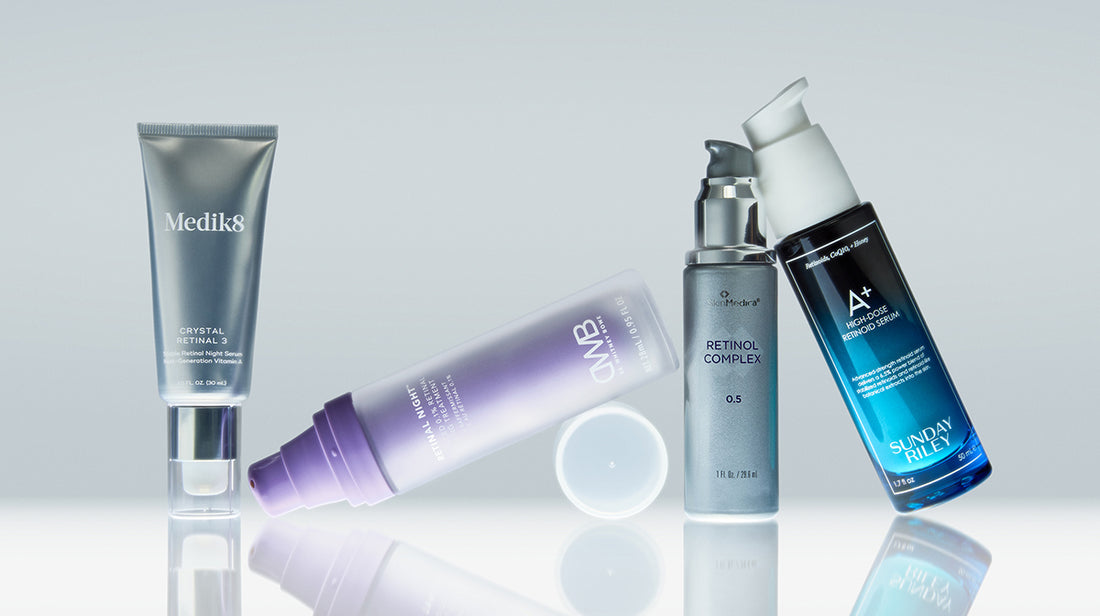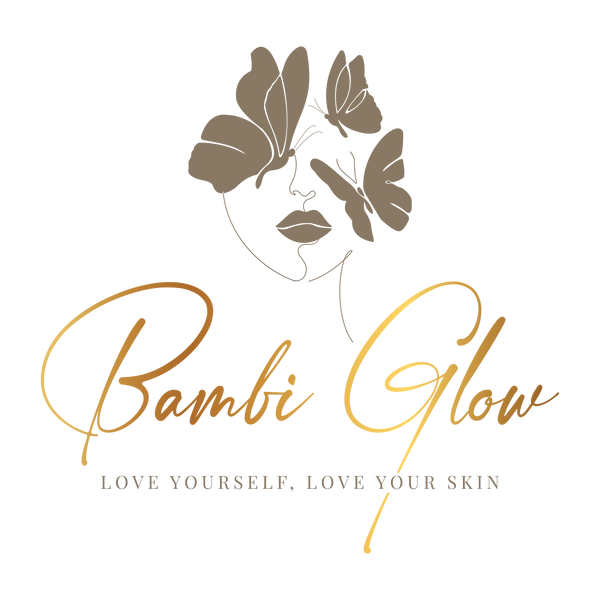
Retinoids 101: Understanding the Basics
Share
When it comes to skincare, one of the most powerful ingredients you can have in your arsenal is a retinoid. Whether you're dealing with fine lines, acne, or uneven skin tone, retinoids can do wonders for your skin. But with so many products and terms floating around—retinol, retinoids, retinoic acid—it can get confusing. Let’s break it down and get back to the basics of what retinoids are and why you need them in your routine.
What Are Retinoids?
Retinoids are a class of compounds derived from vitamin A. They're well-known for their ability to promote skin renewal, smooth wrinkles, and fade dark spots. Essentially, retinoids speed up cell turnover, helping the skin shed old cells and replace them with new, healthy ones. This process helps improve skin texture, tone, and clarity over time.
While retinol is the most well-known retinoid in skincare, there are several types of retinoids such as retinal, retinyl esters (including retinyl palmitate, retinyl acetate, and retinyl propionate), Granactive RetinoidTM (hydroxypinacolone retinoate) - all of these are the branches that make up the vitamin A family tree.
Retinoid is an overarching term for a group of chemicals derived from vitamin A. Let’s review three different types of retinoids: retinol, Granactive Retinoid™, and retinaldehyde (also known as “retinal”).
Retinol is the most commonly used form of vitamin A in skincare, and one of the most well-studied. It is two conversion steps away from the most direct form of vitamin A.
Another form of retinoid is Granactive Retinoid (also known by its chemical name hydroxypinacolone retinoate). It is a next-generation, newer retinoid that provides similar benefits to those of other retinoids, without requiring conversion on skin.
Retinal is a well-studied ingredient that is one conversion step away from the most direct form of vitamin A. Of all three, this is the strongest and most potent.
One of the key differences between these retinoids is the amount of steps it takes to convert them into the bioactive form. Most retinoids must undergo conversion in order for them to deliver their skin benefits.
The Science Behind Retinoids
Retinoids have two primary benefits: enhancing the skin's renewal process and supporting the skin’s essential structural components responsible for skin firmness.
Our skin has its own renewal process that is responsible for exfoliating the skin and maintaining its smoothness and radiance. This is a process commonly referred to as skin cell turnover. As we grow older, the skin's natural renewal process begins to slow down. Retinoids help to maintain this renewal process which is how it's able to improve skin texture and even the appearance of skin tone. It also helps to visibly improve aging skin. The change in the rate of skin cell turnover when you introduce a retinoid into your routine is also what can contribute to the dryness and irritation you can experience.
Additionally, changes to the skin’s natural collagen and elastin content can lead to fine lines and wrinkles, as well as loss of elasticity and firmness. Retinoids target the appearance of the signs of aging caused by this loss of structural proteins.
One of the key differences between all those Retinoids we mentioned earlier, is the amount of steps it takes to convert them into the bioactive form. Retinoids must undergo conversion in order for them to deliver their skin benefits. Retinol for example, is first converted to retinal before then transforming into the bioactive form. Granactive Retinoid™, on the other hand, is formulated for direct use by the skin and doesn't require conversion to become active. The closer a molecule is to the bioactive form of vitamin A, the more efficiently it's delivered, ensuring more effective results - but the more likely it is to be irritating to the skin if you haven’t used Retinoids before.
When Should You Incorporate Retinoids?
“What age should I start using Retinoids?” is a common question we get asked. While opinions on the ideal age for starting retinoid use may vary, the key is that everyone's skin is unique. That means the right time to begin using retinoids is when it feels right for you. That being said, it's generally not recommended for younger people to use retinoids because their skin is less mature and more prone to irritation from potent active ingredients.
The rate at which the aging process affects your skin can differ based on your genetics and environmental factors, including UV exposure, pollution levels, and lifestyle choices.. Consider beginning a retinoid regimen when you want to address signs of aging, as well as texture and uneven skin tone.
Some common aging indicators to watch for include the emergence of fine lines around the eyes and forehead, a decrease in firmness, and an overall dullness or lackluster appearance to the skin.
Starting with a lower concentration and gradually increasing can help your skin adapt. Also, an introduction to retinoid skincare is key in timing and usage. Before introducing any new skincare products into your regimen, patch testing is always recommended.
Retinoids & Pregnancy
When it comes to retinoids and pregnancy or breastfeeding, please consult with your doctor about skincare you may wish to use.
How to Use Retinoids in Your Routine
Start slow! Retinoids are powerful, and jumping in too fast can cause irritation, dryness, and peeling. Here are a few tips for beginners:
- Start with a low concentration and apply just two to three times a week.
- Always use sunscreen during the day, as retinoids can make your skin more sensitive to the sun.
- Moisturize well to avoid dryness or flakiness.
Conclusion
Retinoids are truly one of the most effective ingredients in skincare. Whether you're tackling acne, wrinkles, or hyperpigmentation, retinoids can help transform your skin over time. Remember, consistency is key—results won’t happen overnight, but with patience and proper use, you'll be rewarded with healthier, smoother, and more radiant skin.
At Bambi Glow, we offer a range of retinoid-based products to help you on your journey to better skin. If you're ready to take the plunge and give your skin the love it deserves, we’ve got you covered. Don't forget, great skin takes time—so enjoy the journey and glow from within!
